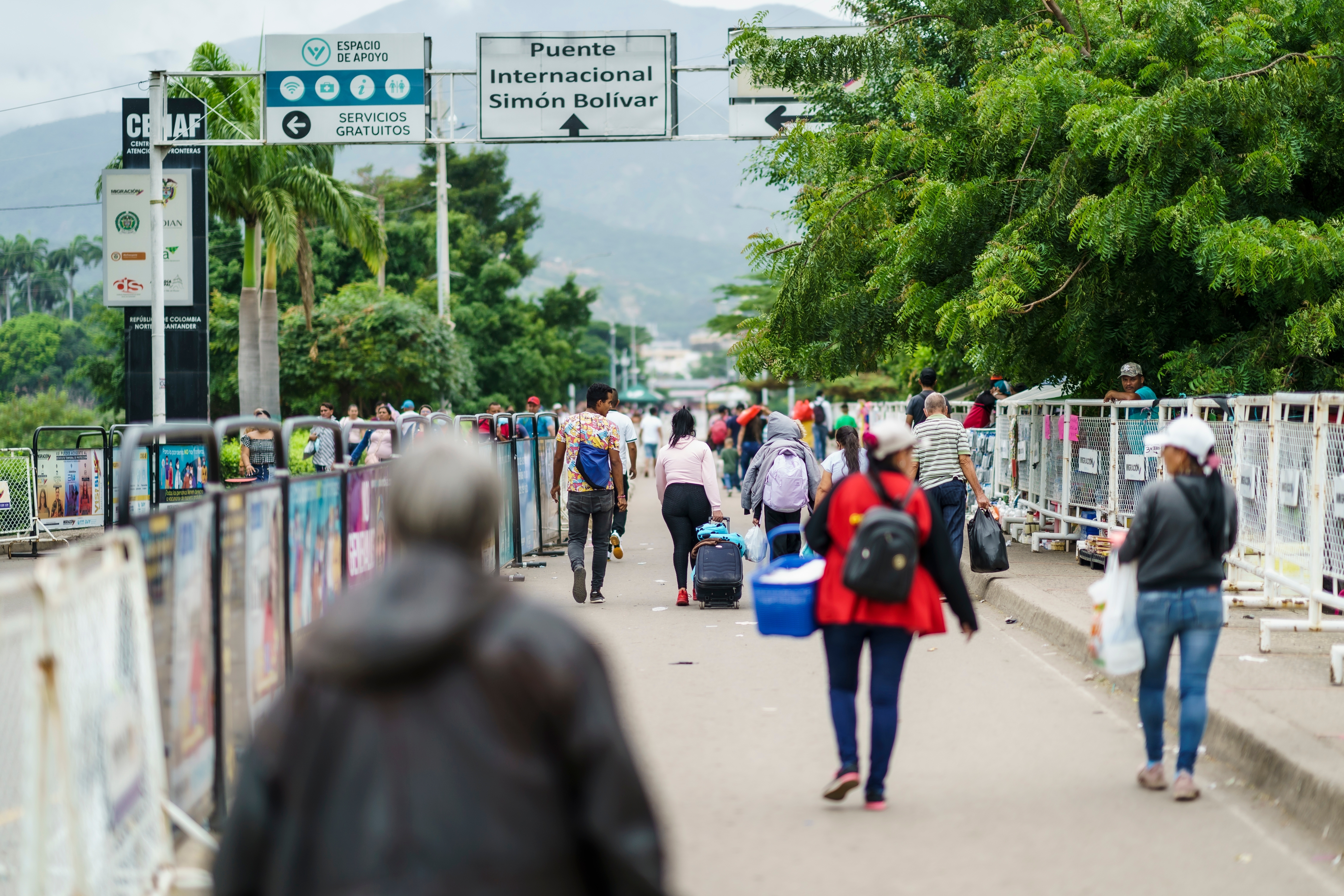The Impact of Temporary Working and Residence Permits for Venezuelan Migrants in Colombia

Researchers partnered with IPA Colombia to evaluate the impact of the Permiso Especial de Permanencia (PEP), a regularization program for Venezuelan migrants on well-being, access to social and financial services, and employment. The regularization through the PEP program improved Venezuelan migrants' lives by increasing their expenditure on daily needs by 48 percent, access to healthcare by 27 percentage points, and use of financial products by 44 percentage points, even though finding jobs remained a challenge. The fiscal costs incurred by the Colombian government for a regularized migrant household are lower than those for an irregular migrant household.
The Challenge
Forced migration has become one of the most pressing global challenges, with numbers more than doubled in the last decade, reaching 110 million people by 2023, with approximately one-third crossing international borders.1 Venezuela represents one of the largest migration crises, with seven million people fleeing their country due to economic collapse, political instability, and humanitarian crises—representing 19 percent of forced migrants worldwide. Nearly three million have settled in Colombia, making it the largest host country in Latin America.2 In response, the Colombian government launched the Permiso Especial de Permanencia (PEP) in 2018, granting Venezuelan migrants temporary residence and access to social services and formal employment.
The Evaluation
Researchers partnered with IPA Colombia to evaluate the impact of PEP on Venezuelan migrants’ well-being, access to services, and employment. The program required registration in the Registro Administrativo de Migrantes Venezolanos (RAMV), a nationwide census of irregular Venezuelan migrants, open from April to June 2018. This allowed researchers to compare migrants who arrived before June 8, 2018 (eligible for RAMV and PEP) with those who arrived shortly after (ineligible). The survey involved 2,232 Venezuelan forced migrant households from Barranquilla, Bogotá, Medellín, and a fourth region of smaller cities. The intervention group consisted of households randomly selected from the RAMV census, while the comparison group included non-RAMV migrant households identified through associations and referrals.
Results
Venezuelan migrants with PEP experienced significant economic and social gains. Their household spending increased by 48 percent and their earnings were 22 percent higher compared to non-regularized migrants. PEP also opened the door to financial inclusion, with 44 percentage points increase in bank account ownership. Access to essential services improved considerably: enrollment in the Sisbén social registry rose by 57 percentage points, access to subsidized healthcare increased by 27 percentage points, and receipt of government transfers rose by 22 percentage points.
Better access to services drove improvements in migrants’ well-being. Healthcare access through PEP reduced health expenses, which improved their well-being, and freed up money for other needs. Government transfers further increased spending power, while access to accounts opened new job opportunities. Migrants reported that healthcare access brought “peace of mind”, letting them plan beyond immediate needs.
Cost-effectiveness
Supporting a household with legal status costs the Colombian government USD $610 annually, 42 percent less than what researchers estimate as the cost for the government for households without legal status, USD $1,056. Based on the researchers' calculations, legally recognized migrants generate 88 percent more tax revenue through increased consumption and formal employment contributions; healthcare delivery becomes more efficient as costs drop from USD $898 to USD $550 per household when migrants shift from using expensive emergency services to accessing preventive care; and while education spending increases (as enrollment rises), the overall fiscal burden decreases.
Policy Impact and Implications
The results show the importance of the regularization processes for the inclusion and well-being of migrants in host communities. While the program significantly improved migrants' well-being and service access, it had limited impact on their employment situations. Future research should examine the program's long-term effects on public services and job markets.
Sources
1 UNHCR (2023). “Flagship Reports: Refugee Data Finder.” United Nations High Commissioner for Refugees. https://www.unhcr.org/refugee-statistics/. Accessed August 2023.
2 “Colombia’s Refugee Crisis and Integration Approach Explained.” n.d. www.unrefugees.org. https://www.unrefugees.org/news/colombia-s-refugee-crisis-and-integration-approach-explained/.
3 The fourth region includes Cúcuta, Villa del Rosario, Cali, Cartagena, Riohacha, Maicao, Uribia, Valledupar, Santa Marta, and Arauca.












